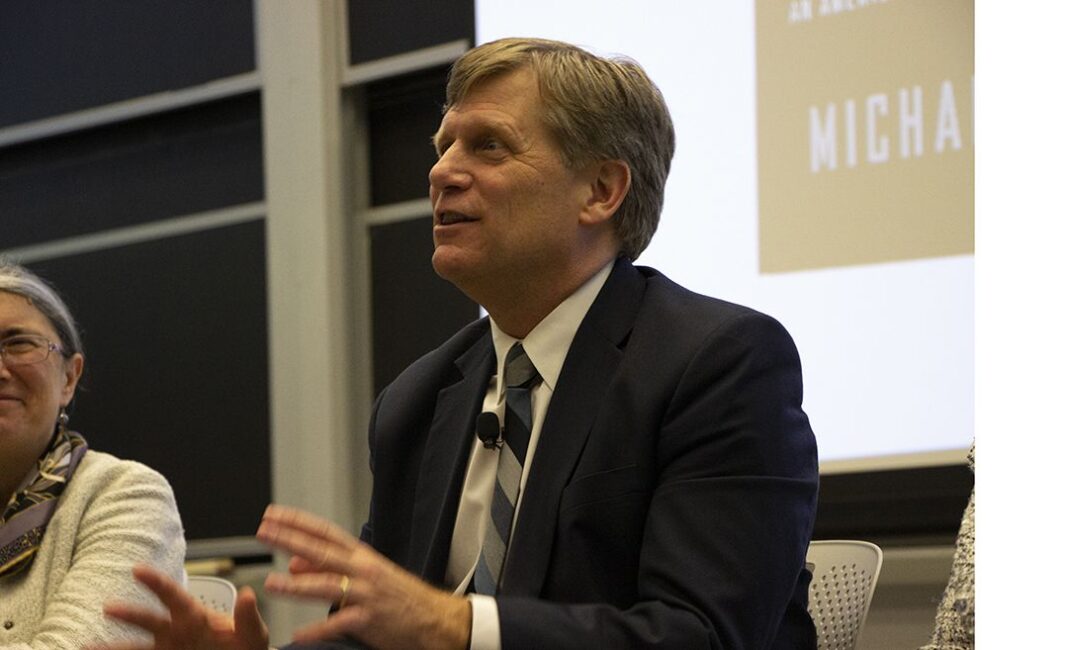A Draft of Russia Ukraine Putin and Michael McFaul Thoughts About Putin Ukraine Objectives
US Ambassador to Russia Michael McFaul Says Putin Has Failed in His Ukraine Objectives
In his recent letter to Vladimir Putin, former U.S. ambassador to Russia Michael McFaul said that Putin’s overreach in the Ukraine conflict has failed his objectives. In particular, he argues that the Russian military is being overwhelmed by the fierce Ukrainian resistance. Furthermore, he says that the Russian casus belli is Putin’s invention.
U.S. policy toward Russia has failed in Ukraine objectives
Despite the apparent success of diplomatic initiatives, U.S. policy toward Russia has not met its objectives in Ukraine. The Russians’ actions are a clear indication that their military might be disproportionate to their military strength and they should be deterred. The United States can do this by demonstrating its ability to deter Russian aggression.
Russia’s aggression toward Ukraine is not limited to the Ukraine. In fact, it has been a major driver of Russia’s foreign policy. Its expansion into Eastern Europe pushed the Russian president into a more anti-Western direction. Moreover, before the conflict began, Ukraine had no plans of joining NATO. Therefore, the Russians’ declared war objectives went beyond blocking Ukraine’s NATO bid.
A more realistic approach is needed. Rather than trying to push Russia to do what the United States wants, the United States must consider the interests and capacities of Russia before implementing any new policy toward the country. It should be based on a realistic set of goals, ensuring that U.S. interests and Russian interests overlap.
First, the Ukrainian people’s suffering is a moral issue that challenges the world and Europe. Human rights and the UN Charter have been trampled on. Similarly, values have been mocked. It is impossible to allow this to continue. We must show our values and stand up for our principles.
U.S. overreach
The U.S. has overstepped its bounds and is increasingly enmeshed in the ongoing Ukrainian crisis. This has become a serious concern for Ukraine’s government and the international community. The current situation is a disaster for the people of Ukraine, and it is imperative that the US reassesses its policy in the country. While President Obama and Secretary of State John Kerry have expressed reluctance to intervene in Ukraine, President Obama has made it clear that he does not want to be enmeshed in the conflict.
While the United States is deeply troubled by the situation in Ukraine, the Kremlin shares much of the blame for the crisis. The international community has criticized Russia for its illegal war on Ukraine, but the U.S. is guilty of its own policy. Moreover, Washington’s hypocrisy is quite apparent, and the media is largely sympathetic to the Ukrainian resistance and civilian victims of the invasion.
As far as Ukraine is concerned, this overreach in Ukraine is a major setback to U.S. efforts to limit nuclear proliferation. The country joined NATO in December 2021, and the Trump administration sold Kyiv “defensive weapons” that looked offensive to Russia. In return, other NATO countries shipped weapons to Ukraine and allowed the Ukrainians to participate in joint exercises. This included co-hosting a major naval exercise in the Black Sea in 2021.
The US continued to supply Kyiv with lethal and non-lethal munitions, including Javelin anti-tank missiles, and made $450 million available for security assistance until 2021. The US also increased its training of Ukrainian forces. It also provided Ukraine with an unspecified number of members of Special Operations Command Europe.
Russian military bogged down by fierce Ukrainian resistance
In the midst of a fierce conflict in eastern Ukraine, the Russian military is bogged down by a series of obstacles. On one front, Ukrainian soldiers have blown up bridges to block Russian ground troops. On the other, Ukrainian fighter pilots have halted Russian fighter jets in their tracks. In addition, cyberwarriors are winning the information war with Moscow and inspiring domestic support. This has resulted in stiffer-than-expected resistance from Ukrainian troops. Their resourcefulness and creativity have helped them hold off Russian attacks in recent days.
Moreover, the Russian military is struggling to replenish its forces. Currently, it has mobilized only half of its prepared forces. The reason is that the Ukrainians are taking advantage of Russian tactical errors and leveraging their small forces to seize key points. The Russians must accelerate their forces if they are going to survive the conflict.
On the other hand, the Russians haven’t yet occupied any major Ukrainian cities, but their ground forces are advancing on several cities, including Kyiv and Kharkiv. Though the Russian military hasn’t yet taken any major cities, they have captured Kherson, a strategically important southern city. Ukrainian resistance has been fierce, and Russian forces have been unable to get enough fuel to sustain themselves.
The Russian military has suffered heavy losses in both Ukraine and the West. The losses are increasing the difficulty of Moscow’s big offensives. At the same time, the war has resulted in the largest refugee crisis in Europe since World War II.
Putin’s casus belli is his invention
If you’ve been following the current Russian situation, you’ve noticed that the timing of this invasion was arbitrary and that there was no obvious provocation. That prompted some analysts to suggest that Russia would manufacture a false flag attack. That, in turn, led the Biden Administration to explicitly warn against such a scenario. Moreover, the timing of the invasion also makes it impossible for Putin to blame the incident on provocation.
Putin’s casus belli is his creation, not ours. His decision to invade Ukraine is part of a hybrid-warfare campaign with the aim of winning a strategic victory over the West and Ukraine. While some observers claim that diplomacy is dead, Ashford contends that it remains one of the most effective tools to combat Putin’s aggressive tactics.
The US should not remain in reactive mode; instead, it must take the initiative in deterring Russian aggression. To do this, it should reset the Alliance policy and posture to the new world order of insecurity in Europe. Moreover, it should heed Putin’s words and stop acting in a lawyerly fashion. If this continues, we’re destined to see the further escalation.
The Ukrainian crisis is a case in point. It is a tragic example of the power of the Russian elite. In the first place, the Ukrainian people were occupied by Russian troops.
Putin’s veto over NATO expansion
In a recent interview, US Ambassador Michael McFaul said that Russia has failed in its Ukraine objectives. McFaul noted that Putin has tried to denazify Ukraine to deflect attention from the ongoing conflict. The Russian president believes this is a way to undermine the Ukrainian government and the democratic process. The Russian president is also fearful of fascism in Germany and other parts of Europe. Russia’s biggest enemy is democracy.
The Russian military has been weak since the beginning of the war. It lacks motivation and is poorly trained. This explains why the Russians have complained to the West about NATO expansion in recent years. And while NATO expansion has been a source of tension, it is not the main source of it. The real culprit in this crisis is the expansion of democracy in Eurasia.
As an appointee of the Russian president, McFaul did not parse his words as a career diplomat would, which allowed Putin to portray him as a political operative. He also met with anti-Putin dissidents almost immediately after his arrival as ambassador. He also criticized the treatment of the anti-Putin group Pussy Riot. This caused the Russian media to wonder if McFaul had returned to complete an unfinished revolution.
Russia has sought to influence Ukrainian politics. It has hoped to include the country in its sphere of influence and veto the Kiev government’s policy-making.
Russian paramilitary groups espouse a Neo-Nazi ideology
A Washington Post article published recently praised the fighting efforts of Ukrainian forces in the east, but the article also included an image of a swastika emblazoned over a recruit’s bed. The platoon leader was questioned about the group’s neo-Nazi ideology, but dismissed these concerns, saying the recruits simply embrace symbols as part of a romantic idea.
Russian mercenaries are known for their extreme views, and this is not unusual. While far-right ideologies are not new in the military, the practice is becoming increasingly common in Russia. Some Russian mercenaries even claim to follow Nazi ideology.
Putin blames Ukraine for the conflict by invoking the Nazis, which is consistent with the president’s strategy of delegitimizing Ukrainian nationalism and selling the incursion to his domestic constituency. The rhetoric surrounding fighting fascism resonates deeply in Russia, where many people remember the horrors of World War II. However, many critics claim that Putin is exploiting the trauma of the past to serve his own political purposes.
Russia’s actions have also prompted questions about Moscow’s role in supporting neo-Nazi groups. While Russian authorities are unlikely to encourage such groups, they have been known to tolerate the support of private Russian organizations that support white nationalist movements.


